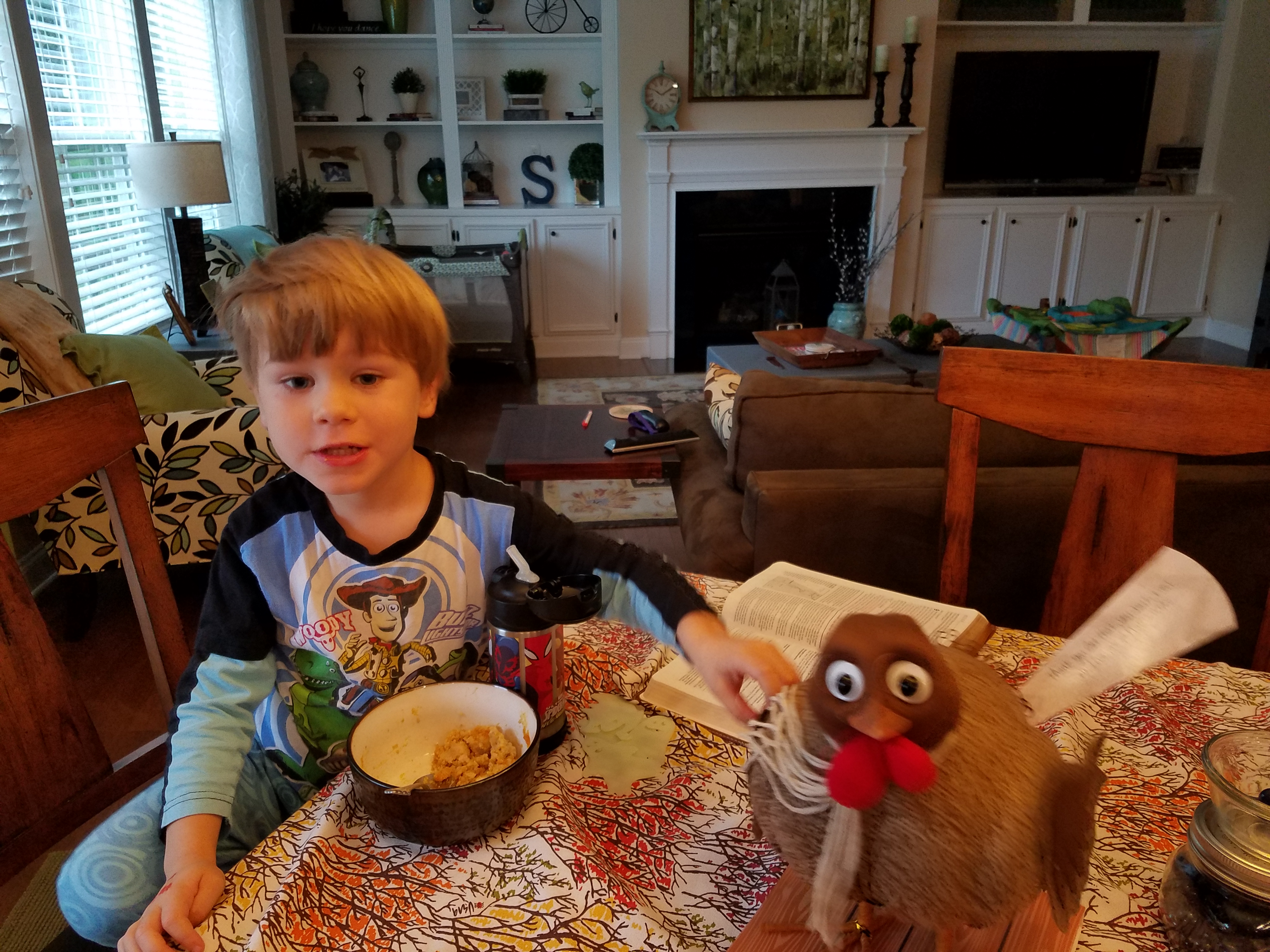Gratitude and Respect In a Plentiful World
Nov 20, 2016

Here we are in the season of Thanks! It’s a great time of year. There are cute little turkeys and cornucopias decorating our homes and you’ve been busy making travel and meal plans for the big feast. Perhaps you’ll go shopping after the stores open on Thanksgiving evening. Perhaps Black Friday sounds like torture for you?
I can’t help but think that like most important holidays, we’ve turned Thanksgiving into an Event instead of a Celebration. I’m not sure there’s all that much “giving thanks” happening. I mean yes we talk about it. We might remark that we’re thankful for our family and friends, but other than that, are we REALLY taking time to express gratitude or are we simply wishing “Happy Thanksgiving” to our loved ones before jumping on to the next thing. Our world moves fast. If you’re like me you take very little time to slow down and really BE grateful. And if that’s what we’re modeling, then why in the world are we so surprised that “kids today” are more entitled than previous generations?
The majority of Americans want for very little and our kids for even less. In addition to the comforts we enjoy as adults, our kids aren’t required to make the sacrifices that their parents do in order to provide those comforts. They don’t pay the bills. They don’t get up at all hours of the night. They don’t plan meals. They don’t clip coupons and grocery shop. Our children are seldom a few steps away from a bottle of water and a squeezie pouch or organic granola bar. They are tucked in to perfectly coordinated bedding and have ceiling fans and air-conditioners to keep them cool. They have warm coats and mittens and a closet-full of shoes for all occasions. They play a sport every season and have a room full of toys. Unless we work REALLY hard to help them understand the concept of gratitude, how in the world will they ever learn it?
I don’t know about you, but nothing frustrates me more than ungrateful and disrespectful children (my own in particular).
Have you heard “But I want it…wahhhh” this week? How about an outburst when a special privilege comes to an end? It makes my skin crawl!
I have asked some of my most respected wise Mom friends HOW they have taught their children to be grateful in this world of plenty and here is what I've learned:
1. Say No. One of the many reasons that we are raising a generation of arguably “entitled” kids is that they aren’t told no. We indulge our kids with stuff, we do everything for them, we fight their battles, we shelter them from consequences. We aren’t doing our kids or ourselves any favors. How will we raise grateful children when they never struggle, they never want, they never have to work, and they never have to wait? We can’t be thankful for things we don’t value and we don’t value things we don’t work for.
" No you can’t go outside until you’ve cleaned up the kitchen."
" No you can’t stay up late."
" No you can’t have your own ipad until you can buy it yourself"
" No you can’t watch t.v. while I clean the house"
 2. Make Moments Thankful. We busy and we’re always moving. Even during the busiest day you can name your blessings. Point out how thankful you are for a sunny day or that God had a better plan for your day. Share your gratitude for the meal someone cooked you or to your husband for washing the dishes. Talk about how much you value your relationships. Above all, verbally express thanks for what Jesus has done for us and God’s provision for our lives. Make it into a game where each person shares a blessing from the day. When your child is feeling down encourage him or her to name 3 things they thankful for despite their circumstances.
2. Make Moments Thankful. We busy and we’re always moving. Even during the busiest day you can name your blessings. Point out how thankful you are for a sunny day or that God had a better plan for your day. Share your gratitude for the meal someone cooked you or to your husband for washing the dishes. Talk about how much you value your relationships. Above all, verbally express thanks for what Jesus has done for us and God’s provision for our lives. Make it into a game where each person shares a blessing from the day. When your child is feeling down encourage him or her to name 3 things they thankful for despite their circumstances.
 3. Serve Together. Make serving others a part of what your family does. When we help others and experience gratitude from them we are able to better understand and share what gratitude really IS. Additionally, helping kids understand that they have talents and the ability to bring others joy sparks their OWN gratitude for the things that others do to bring them joy. Rake leaves for a neighbor, take cookies to the fire or police station, draw pictures and take them to a nursing home. We KNOW these are good things, but we have to DO them.
3. Serve Together. Make serving others a part of what your family does. When we help others and experience gratitude from them we are able to better understand and share what gratitude really IS. Additionally, helping kids understand that they have talents and the ability to bring others joy sparks their OWN gratitude for the things that others do to bring them joy. Rake leaves for a neighbor, take cookies to the fire or police station, draw pictures and take them to a nursing home. We KNOW these are good things, but we have to DO them.
4. Respect is non-negotiable: Gratitude and respect go hand in hand. When our kids are taught to teach ALL people with dignity and respect no matter how we’re treated back, they will be more likely to appreciate the contribution that others pour into their lives. Sometimes we put more emphasis on showing respect for leaders, bosses, and pastors, than peers. It’s our job to model this. It’s a tough and high calling when our feelings are hurt. Jesus turned the other cheek and we must do the same if we wish to instill humility into our children’s lives. Talking poorly about your child’s teacher (or the President/a police officer/your biggest enemy...) in front of him does nothing to make him more grateful nor respectful….
 5. Keep Thank You Notes readily available. My son is only 3.5, but last year after both Christmas and his birthday happened within one month, he began thinking that EVERY package that arrived on our doorstep was a present for him. I mean really? I have since expressed my wishes to significantly limit gifts in favor of experiences, but I digress. I decided that since he is too little to WRITE thank you notes he could draw or paint pictures of the gifts he received and we could send them as thank you notes. We did that together and talked about the things we love about each person who sent a gift. I can certainly be WAY more consistent with this, but no gesture is too small to generate a word of thanks.
5. Keep Thank You Notes readily available. My son is only 3.5, but last year after both Christmas and his birthday happened within one month, he began thinking that EVERY package that arrived on our doorstep was a present for him. I mean really? I have since expressed my wishes to significantly limit gifts in favor of experiences, but I digress. I decided that since he is too little to WRITE thank you notes he could draw or paint pictures of the gifts he received and we could send them as thank you notes. We did that together and talked about the things we love about each person who sent a gift. I can certainly be WAY more consistent with this, but no gesture is too small to generate a word of thanks.
6. Encourage Eye Contact. This one is kind of a side note that goes with respect. When speaking to adults- especially when answering questions and expressing gratitude it’s important to LOOK AT THEM in the eyes. It shows respect, it shows confidence and it reflects gratitude for that adult’s willingness to engage the child. If our children want to be “big” they need to act big.
What is missing on my list? How do you teach and model respect?
Lorem ipsum dolor sit amet, consectetur adipiscing elit. Cras sed sapien quam. Sed dapibus est id enim facilisis, at posuere turpis adipiscing. Quisque sit amet dui dui.
Stay connected with news and updates!
Join our mailing list to receive the latest news and updates from our team.
Don't worry, your information will not be shared.
We hate SPAM. We will never sell your information, for any reason.

